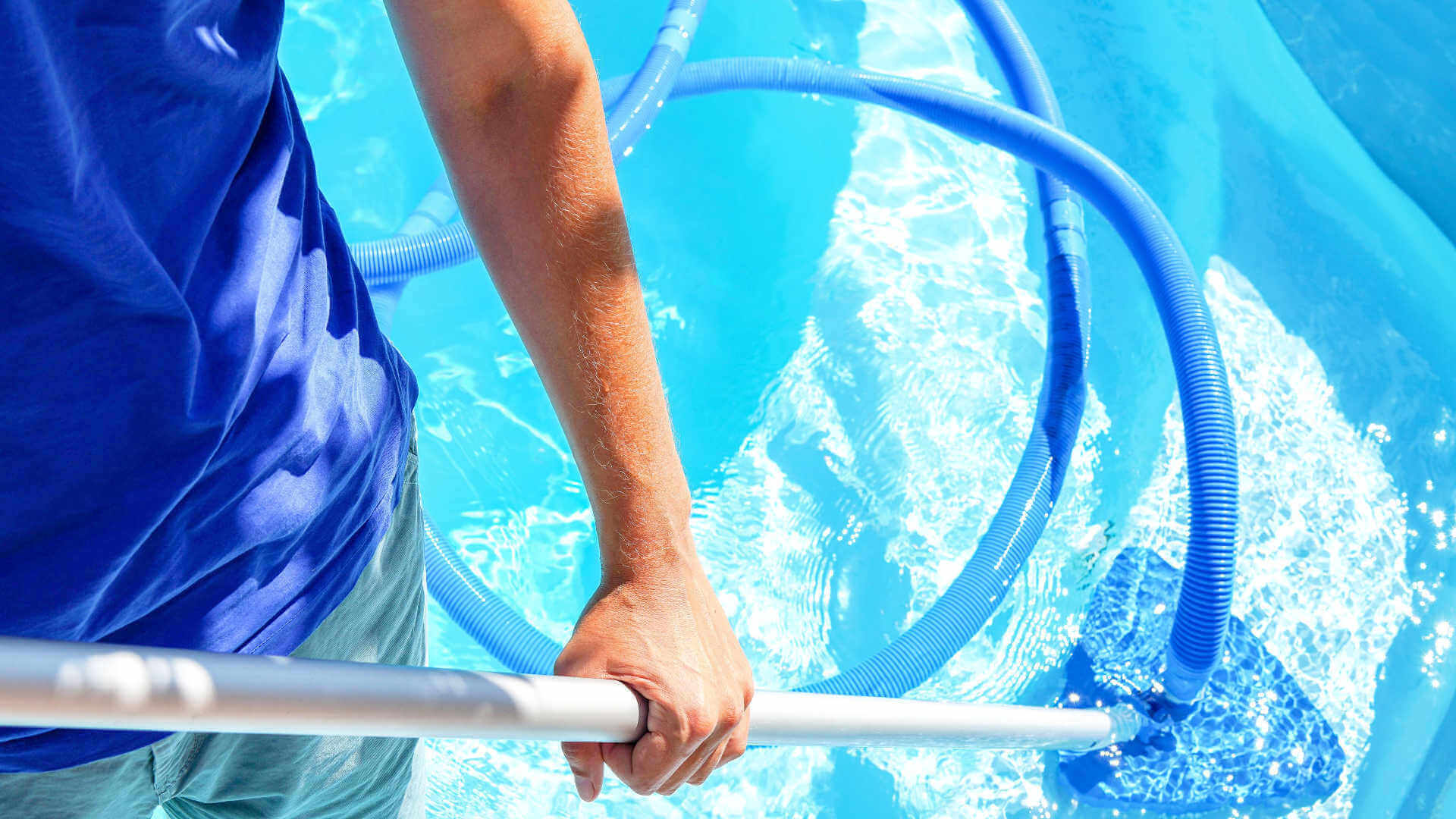How Often Does Your Pool Need Maintenance?

Trying to piece together what your pool needs to stay clean, clear, and operational is no easy task. After all, there are countless different factors playing a part in the maintenance of your pool. With unpredictable weather, falling tree branches, pests, and many other things out of your hands, there’s a lot that may affect your regular maintenance. Here’s our guide on when to do what for your pool to stay on top of most issues. This way, you never have to miss a gorgeous swim day because you need to clean it.
Pool Maintenance: Water Testing
Testing your pool water isn’t only important when trying to avoid waking up to a green pool, it is also necessary to ensure the safety of your swimmers. It is important to ramp up your testing when you have a lot of people jumping in and out of your pool in the warm summer months. Testing about two to three times a week is a safe amount. Testing should be done even more often if you commonly have young children or pets swimming in your pool. It’s difficult to know what germs and bacteria they may be carrying on them.
Weather changes should bring extra attention to your pool and its levels. A bad storm brings the risk of an algae outbreak. Once the rain calms, getting outside to test the chlorine and pH levels is the best way to find an issue before it becomes a big hassle. Don’t forget, though, unusually hot weather can lead to water evaporation, possibly affecting the effectiveness of the chemicals, making extra monitoring important.
We have established that testing your water’s chlorine and pH levels should be done two to three times a week, possibly more depending on the circumstance, but this is not all. There are other important water tests your pool needs as well that don’t need to be done as often.
Total Alkalinity
Total alkalinity should be tested about once a week. This needs to be checked often as it works to maintain pH levels in your pool. If total alkalinity levels are low, pH will drop, and vice versa, if total alkalinity levels are high, the pH will rise.
Calcium Hardness
Calcium hardness should be tested about once a month. Managing your calcium hardness level keeps your water properly balanced. If you don’t, the appearance of your pool’s water may change. For example, water with a high calcium hardness level will appear cloudy to the eye.
Total Dissolved Solids
The total dissolved solids level is important to check every month as well. If this level is too high, the effectiveness of all of the other chemicals in your pool can be hurt. Total dissolved solids can be anything that has dissolved into your pool water, from dust and pollen to chemicals. These elements affect the effectiveness of the chemicals that are supposed to balance your pool water.
While these are a few important and frequent tests, there are countless others to be done at certain times. These other tests should particularly be looked into if having an issue with your pool when the levels listed above look correct.
Pool Maintenance: Cleaning
Cleaning your pool is often easier to understand than water testing, but that does not mean it isn’t equally as important. Water testing alone won’t keep your pool safe enough to swim in. Without cleaning it, harmful bacteria and germs such as E.coli, Cryptosporidium, and Giardia can live in the water. These hazards can cause diseases and other health issues, making pool cleaning too important to ignore. So how often do you need to clean your pool to protect yourself from these elements?
The time between cleanings depends on the different tools. One of the most important things to do is vacuum your pool, and this should be done at least once a week. Note though, that if your pool is located in an area surrounded by trees or typically has a lot of other debris falling in, vacuuming twice a week may be necessary. Vacuuming removes leaves, bugs, dirt, and other debris, but it also helps control your pH levels.
Skimming your pool, brushing its walls, and sweeping its stairs are two other practices that should be done regularly. Skimming debris floating in your pool not only makes it look much nicer but will also reduce the amount of vacuuming needed. While brushing your pool walls can also be for cosmetics, it also removes dirt and grind build-up, eliminating the risk of water contamination.
More Questions On Your Pool Maintenance Needs?
Do you still have a specific maintenance question? Visit any Aqua Leisure Pools & Spas location for detailed instructions on how to keep your pool in tip-top shape. We’ll make sure you know exactly what your pool needs!
Posted by Aqua Leisure Pools & Spas in Pools

